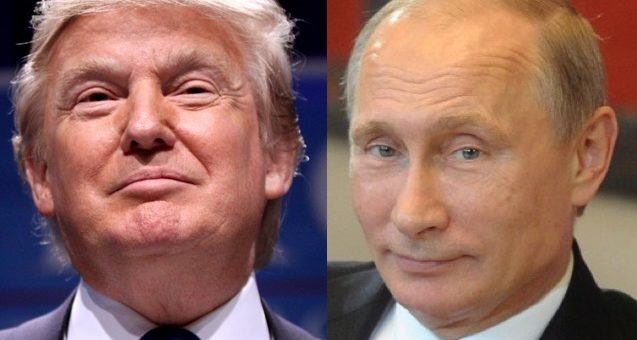Trump-Putin honeymoon would not last long: expert

TEHRAN – Professor Simon Reich of Rutgers University is of the opinion that the Trump-Putin honeymoon would not last long, predicting that Trump’s overture toward Putin would probably find the fate of the Obama administration’s “reset" policy with Russia.
“I think the rapprochement between the two leaders will only last as long as there is no disagreement over policy. Obama tried a reset and it failed. Trump is trying the same,” the political science professor tells the Tehran Times.
Q: What will be Donald Trump’s foreign policy priorities?
A: I anticipate his primary focus will be on two things: economic policy (mostly Asia) and anti-terrorism (mostly the Middle East).
Q: Is Trump taking an isolationist approach based on the Monroe Doctrine?
A: I think that he has expressed isolationist tendencies in his campaign with his references to ‘American First.’ But to call him isolationist would be an overstatement. He is pragmatic rather than an ideologue. I believe in office he will focus on a modified form of protectionism with perhaps some sector specific trade barriers, bilateral trade agreements and some modifications to NAFTA. He will demand that America’s security partners in Europe and Asia pay more towards their own defense. But that is reflective of a growing bilateral consensus in the U.S. He has just more been abrasive and outspoken in his approach than Obama was and Clinton would have been.
Q: How Trump will treat the Middle East?
A: I believe that his primary focus will be on 1. Anti-terrorism. This will entail more support for Israel, a continued American military presence in the Strait of Hormuz, more cooperation with Russia in fighting terrorism,… that may result is greater tension with Iran but also Saudi Arabia. And cooperation with Russia will last until the two leaders clash on policy issues. 2. Further reducing U.S. dependence on Middle Eastern oil, a trend for several years. 3. It is only a guess but believe the Iranian nuclear agreement will remain in place if Iran’s leadership takes a less confrontational position on other issues. But Trump will be more willing to react to Iranian provocation than Obama who was more patient.
Q: What do Europeans think of the rapprochement between Trump and Putin?
Europeans are obviously worried that Trump will accommodate Putin by supporting NATO less. The early signs are that Trump is retreating from his bold statements about NATO. He wants NATO to pay more for their own defense. They are legally bound to do so but only 5 of 28 members did so last year. I think the rapprochement between the two leaders will only last as long as there is no disagreement over policy. Obama tried a reset and it failed. Trump is trying the same. I think it may fail again and the Europeans will agree to contribute more. I suspect that is what Obama is privately telling the European leaders right now.
Q: Before Trump was elected U.S. president the European Union’s chief diplomat Federica Mogherini said the bloc’s foreign and defense ministers have agreed about a common security and defense cooperation. In light of such remarks and developments is it possible to see a European force parallel to NATO?
A: Not really. The UK and France are the only two countries in the EU with truly effective and well-rounded military forces (land, sea and air). The UK is leaving the EU. This requires the Germans to spend a lot more on defense. They are reluctant to do so for both historic and economic reasons. Since WW2 the Germans have foresworn having a large military capability. Economically, they now have to pay, for example, for the integration of Syrian refugees. Finally, there are a host of operational problems in forming an EU army. They have countless interoperability problems.
Leave a Comment